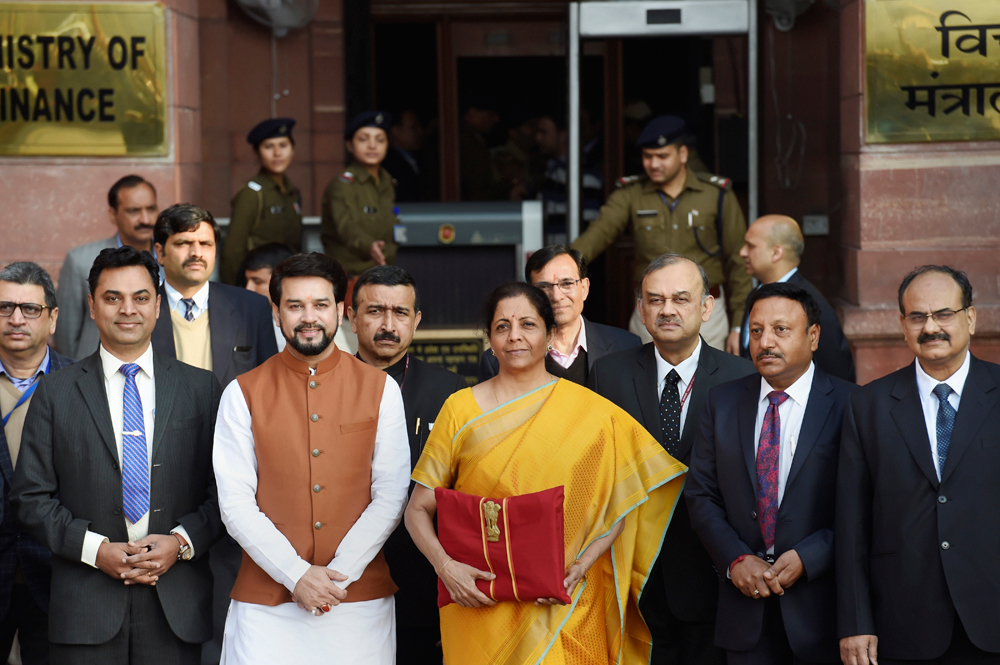The Budget was a great opportunity for the finance minister to redeem the government’s promise of Subka Saath, Subka Vikaas. But given that the FM finds herself between a rock and a hard place — in terms of an economic slowdown, weak tax collections and demands to kick start a consumption boom — she has done a reasonably good job at prioritising her giveaways.
For good reason, the FM has termed this budget an aspirational budget. A little support from global tailwinds could see a marked change in our economic fortunes. Meanwhile, the aspiration of realising a $5-trillion economy depends on how deftly the FM can navigate the economy out of the current slowdown. But she has put the right building blocks in place.
The rejig in the income tax structure, though making it cumbersome, puts a significant amount of disposable income in the hands of middle class households. The modest accommodation in the fiscal deficit numbers also puts some extra investible corpus in the government’s hand. The slippage in fiscal deficit is not significant to stoke inflationary pressures, particularly when the objective is to channel the funds in hard infrastructure.
To my mind, the central premise of this budget is to reduce frictional costs in doing business in India. One of the key eyesores for foreign investors was India’s complex tax regime, marked by disputes and endless litigations. The budget makes a determined effort to assuage those concerns when it proposes a taxpayers’ charter, which is to be included in the statute books. This should provide global investors with a lot of comfort.
The weeding out of 70 of the 100-odd exemptions in the Income Tax Act is in the same vein, towards simplification of our tax administration.
The dividend distribution tax, which amounted to a double incidence of taxation in the hands of companies, is proposed to be abolished. Now, dividends received from companies will be taxed in the hands of shareholders. The FM needs to be complimented for this move and decriminalisation of corporate laws. I have always maintained that these are required to attract foreign investment in India.
The drive towards simplification and uniformity is also seen in the taxation structure for cooperatives, which is now brought on a par with corporates. Foreign investors have been given additional leeway, bringing them closer to domestic investors.
For instance, foreign investors can stock on a higher level of government securities and the limits of foreign portfolio investment in corporate bonds has been increased to 15 per cent from 9 per cent of outstanding bonds. The collateral impact of these measures will be to enhance liquidity in the domestic system. However, changes in the definition of non-residency will trigger several high net worth investors to review their Indian residency status. The government could have tapped the NRI investment potential better given the fact that we needed all possible engines to fire.
The budget puts an outlay of Rs 1,03,000 crore for infrastructure development in the next five years. Channeled into the right projects, this investment could be a game changer for both economic activity and job creation at the secondary and tertiary levels.
There are pockets of disappointment, though. The budget fails to take on record the distress in the auto and general manufacturing sectors. We can only hope the economy does not slip any further before it starts to look up.
Ashok Hinduja is chairman, Hinduja Group of Companies










